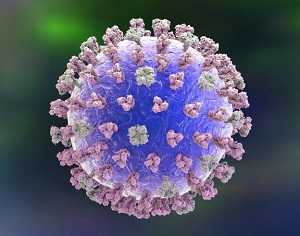WHAT IS AUSSIE FLU? Medical experts saw it coming and issued weeks of warnings. But, they couldn’t stop Aussie flu spreading across Britain.
They also said this particular strong strain could spark one of the worst flu outbreaks in recent years.
Public Health England already confirmed nationwide cases of the H3N2 strain. One of their flu reports also revealed a number of UK-wide hospital admissions.
Some were actually admitted to intensive care. Whereas, others received treatment for infectious diseases in a high dependency unit.
Aussie flu is different to the normal flu virus. It gets its name after causing severe public health problems during the Australian flu season. But, there are several steps can you take to avoid getting this strong strain of influenza.
In fact, H3N2 is a subtype of influenza ‘A’. It affects older people and those with long-term health conditions more than others. Pregnant women and young children are also at risk.
The most severe cases of Australian flu can lead to pneumonia. Thus, it has the potential to cause deadly health complications. Flu viruses mutate into new strains each season. That is why vaccines need to change too. If not, the vaccine offers little protection against common diseases and conditions.
Australian Flu Symptoms
Aussie flu signs and symptoms tend to be like other strains of flu illnesses. But, the most severe symptoms are:
 Body aches
Body aches- Chesty coughing (dry and sore)
- Difficulty sleeping (restless)
- Ear pain (mostly in children)
- Exhaustion and unusual tiredness
- Headache
- Loss of appetite
- Minor congestion
- Nausea (often with stomach pains)
- Sore throat
- Sudden Fever with a temperature of 38°C (or higher)
- Vomiting and diarrhoea
Ways to Avoid getting Australian Flu A(H3N2)
PHE (Public Health England) are urging people to get a flu jab. It will help the most vulnerable protect themselves against the H3N2 flu strain. As a rule, the flu vaccine is the best protection. But, it needs doing every year to keep up with virus mutation.
Any serious side effects to getting vaccinated are quite rare. Your GP or some large pharmacies can administer the Aussie flu vaccine. In the United Kingdom, the seasonal flu jab is free to:
- At-risk adults.
- Children at risk (aged 6 months to 2 years).
- People over 65.
- Pregnant women.
- Note: Children up to four years old can get a spray vaccine.
A diagnosis from your doctor will confirm if you have the flu. But, you can also go to a pharmacist if you did not get diagnosed by a GP. Most pharmacies will have ‘over-the-counter‘ medications to help combat the effects of flu.
Getting diagnosed by a GP will have speedy results. They can prescribe antiviral medication. This is the typical way to tackle Australian flu symptoms and treatment.
How to Prevent the Spread of Flu
People can help prevent the virus spreading – especially to older people. Wash your hands ‘regularly’. Be sure to cover your mouth and nose when coughing or sneezing. Always cleaning any surfaces that may be suspect to the infection.
Australian Flu Home Treatments
The National Health Service (NHS) has some specific advice to help you recover from Aussie flu. They say you should:
- Get plenty of rest and try to sleep it off.
- Stay warm (but do not overheat).
- Paracetamol or ibuprofen can help a fever. It lowers the body temperature and treats body aches and pains.
- Stay hydrated and drink plenty of water (urine should be light yellow or clear).
Some Difference Between the Flu and a Cold
The typical symptoms of flu are much like a common cold. But, bouts of influenza tend to be more extreme and severe.
Common colds usually affect the nose and throat alone. Flu has other symptoms which may lead to serious health complications. In most cases, flu takes effect in only a few hours. It makes you feel extra tired, exhausted, and may lead to pneumonia.

